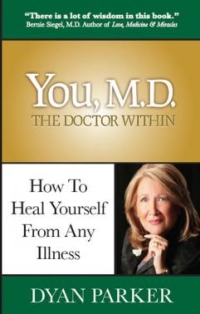Music Is The Ointment That Heals by Dyan Parker
Jul 1, 2017 by The Flute View
After years of research on healing, it became apparent to me that our bodies and minds act in unison. It is therefore important to have an antidote to our emotional wounds so that they do not affect our physical health.
Music is capable of healing those wounds.
How does that happen? How do we come to be wounded in the first place? And then how does music heal such wounds?
We are wounded in very various aspects of our lives on a regular basis. We are wounded when we are lied to; we are wounded when we are betrayed; we are wounded when we do not reach our goals and we are wounded when we disappoint others — or when they disappoint us. We are wounded when we disappoint ourselves. We are wounded when we look around and see a world in chaos. We are wounded when we are afraid. And we are wounded when everything seems to be collapsing around us. We are wounded for so many different reasons, many of them rooted deep down in our emotions. If left unattended, however, these emotional injuries can become physical wounds and eventually turn to disease. Over time, they can become chronic and can even be fatal. The fallout from the emotional wounds runs the gamut.
It is up to each of us to be alert to what is going on in our lives and all that is happening around us. When we are on autopilot we inadvertently ignore what our instincts tell us. To paraphrase a famous quote…The greatest wisdom comes from a life that has been examined sufficiently so that you can trust those small voices that you hear all day long.
You might think you are better off brushing things aside, such as those negative thoughts and experiences, but they remain in your subconscious mind. Every conversation, every interaction, every little thing you hear and see remains with you, stored in your mind and in your body, down to your cellular structure. That storage can create dis-ease if it is not cleared out, in the same way you periodically clean out the refrigerator. At the same time, whatever is put into your cellular structure also becomes part of your response mechanism. You are unlikely to respond appropriately unless you take your time to examine the experiences you store before allowing them to be packed away and become part of your thinking process. You need to first understand that what you are storing in your brain and emotional memory is fact, and not a misinterpretation of the actual facts.
This process is no different from placing items into long-term storage. You need to be alert and aware so that you only carry along what serves you on this voyage through life. When you retrieve information and respond spontaneously you want to be able to trust those responses. That process allows you to develop coping skills (see definition below) that will help you in the long run.
What are coping skills?
The skills that we use when faced with stress are known as coping skills. People develop a pattern upon which they rely during the emotionally difficult times. To help you cope in a healthy manner you can meditate--visit a beautiful, calm place, without even leaving your immediate area. How about making a commitment to taking a daily walk in a beautiful, inspiring location? How about sitting near a waterfall or fountain, walking on the beach, or hiking in the woods? Partaking in activities you love causes you to alter your daily routine and thus alter the subconscious mind. When the brain and your emotions are changed in this way you begin to think out of the box and in an entirely new way. Be aware of yourself and employ methods of caring for yourself --- so that your coping skills are always sharp.
What is Self Care?
Self care is the ability to care for yourself in the same way that you would care for someone you treasure. Wouldn’t you make certain someone you love had the best food, sleep, friendships, life satisfaction, health, joy and everything else that goes into the making of a life well lived? Make it an absolute priority to care for yourself the same way you would take care of others and make room in your schedule for that commitment.
Self care also means communicating your needs clearly so that your relationships are smooth and stress free. At the same time, it is critical to listen to others. What do those around you need? When you help others get their needs met, it is more likely that they, in turn, will help you with your needs. Doing so also keeps the lines of communication open and improves your relationships with others. Situations like these serve to create good health, happiness, joy, and an all-around satisfied life.
Living in a Much Healthier World
For the first time in history, the American life expectancy is now on the decline. That begs the question, why? Why is it that with all the advancements in modern medicine --- the life span is reduced?
Brain research has given us a greater understanding of the mind-body connection. We have better knowledge of the immune system than ever before. Why would our health be declining? There have been advancements in housing, education, and emergency response time. So, what could account for that statistic?
One possible answer to that question is we are not focused on our priorities. Our health, joy, relationships, and life satisfaction — things that contribute to good health and a long happy life — have taken a back seat and instead we are immersed in our busy and often stressful daily lives. The healthiest action we can take to correct this course is to embark on a journey through life as a satisfying adventure. Think about what is truly in your heart. Can you remember the interests, yearnings, hobbies that made the days and weeks fly by when you were a child? Those adventures could ignite and light up your life again now. That satisfaction could go a long way towards improving your relationship with yourself, and with others. By allowing yourself to experience true life satisfaction you can create health and joy in your life today.
We are so fortunate to be living at a time when the human brain is being researched with vigor. There is more and more knowledge of the human brain and its power to serve us for good and for ill. Most importantly, this understanding has the potential to help us by keeping us happy and healthy if we use it to its best advantage.
What the brain does to keep us healthy and what it does to heal us is a phenomenon. Our brain is the engineer that controls everything in our lives; our thoughts, actions, health, and healing are all controlled by our brain. It is no longer a question as to whether the mind and body work in unison. That train has left the station. The only discussion now is how we can best employ our brain to help us reach our goals, stay well, and live the best life that we can. The brain plays a key role in helping us become well if we are ill and in helping us live our very best life so that illness is not a part of our life story.
HOW DOES MUSIC PLAY INTO THIS?
Why is music the ointment that heals our wounds? There is a chemical brain response when you hear music you love. The latest research tells us--- the biological response by your brain is transmitted to your cells and has an immediate positive effect on your immune system. As you listen to the music you are emotionally transported to other times when you listened to that same music. You lose all sense of time and your emotions take over. Just watch someone who is very ill listen to music: their eyes might be closed when the music they love begins to play, but just watch as their facial expression, their demeanor, begins to change. Often there is a smile on their face or their body begins to move to the sound of the music.
When music brings you back to a happier time it is like magic. Suddenly you are back in that moment, with the same energy and emotions, as if the years had melted away. That is the power of listening to music.
There is a growing body of research that sound waves have the power to heal the human body (DNA, cells, brain disorders, bones, muscles, mood disorders, and more) as well as the mind.
Music is made up of sound waves. The body is physically affected by the movement of those waves. Great composers skillfully manipulate those sound waves to create emotional and physical responses. It is those responses that are interpreted by the brain/body and help us to stay healthy or heal from an illness. This happens because the brain is the central computer that controls everything in our body. It is the reason why progressive hospitals set aside time each day to bring musicians in for a musical hour, sometimes two or three hours. As a result, patients are generally calmer, more energetic, less depressed, less fearful, and happier.
Instead of listening to the news in the morning, how about listening to music? It might be classical music that creates the magic for you; it may be jazz, rock, rap, cabaret, or opera. Your favorite music can feel like a massage. The important thing is that you place yourself in an environment that nurtures you to live your best life, avoid dis-ease, and heal from disease.
There is magic in listening to the music you love.
By: Dyan Parker
Author of YOU, M.D.: The Doctor Within
RELEASE DATE: FALL 2018

